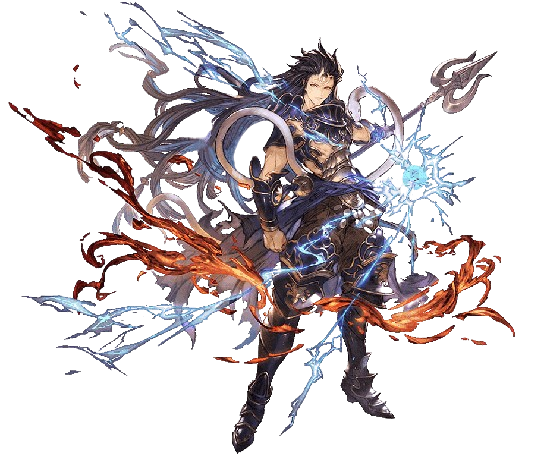Introduction
The world of video games is vast, varied, and complex. A critical element often unnoticed by casual players is the game’s internal economy, an intricate system governing how resources are earned, distributed, and consumed. This article explores the technical aspects of game economics, focusing on how developers craft fantasy economies to enhance player interaction. We will examine the underlying principles, mechanics, algorithms, and real-world inspirations that influence the economic systems within video games, particularly in role-playing games (RPGs), massively multiplayer online (MMO) games, and fantasy sports platforms which are created by game development companies .
Boost Your Fantasy Game Efficiency

What is In-Game Economics?
In-game economics refers to the simulated systems that manage virtual resources, currencies, and market dynamics within a game world. Whether you’re collecting rare materials to craft a sword in an RPG or managing your budget to build a winning fantasy football team, in-game economies add layers of strategy, competition, and immersion to the player experience. Developers design these economies by incorporating real-world economic principles such as supply and demand, market regulation, inflation, and resource scarcity, and adapting them to the fantasy context.
This article will explore two primary categories of in-game economies: fantasy sports and RPG/MMO economies. These two gaming genres apply economic principles in distinct ways, catering to different types of player interaction and engagement.
Fantasy Sports Economies
In fantasy sports, in-game economics revolves around a combination of real and virtual monetary systems that shape player decisions, gameplay, and overall engagement. Below are the key components of how economics works in fantasy sports:
1.Entry Fees and Prize Pools
Many fantasy sports platforms charge users an entry fee to join leagues, particularly in daily fantasy sports. These fees contribute to the total prize pool, which is awarded to top-performing participants. A fantasy football app development company or fantasy baseball app development company may offer both free and paid-entry leagues, where paid-entry leagues offer cash prizes to top performers.
2.Virtual Currencies
Fantasy platforms often use virtual currencies, like coins or tokens, that can be earned or purchased. Players use these currencies to enter leagues, buy in-game enhancements, or unlock exclusive content. Virtual currencies serve as a way for players to engage with the platform without using real money.
3.Budget and Salary Cap
In most fantasy games, users must manage a virtual budget or adhere to a salary cap when selecting players. The value of real-life athletes is determined by past performance, market demand, and current form, forcing users to balance their investments carefully.
4.Player Trading and Transfers
Fantasy leagues often allow for player trading, creating a virtual marketplace where player values fluctuate based on real-world performance. Trades may involve virtual currencies or direct swaps, simulating supply and demand economics and adding another layer of player interaction.
5.Monetization through Ads and Subscriptions
Fantasy platforms frequently generate revenue through advertising and subscriptions. Ads may appear in free versions, while premium memberships offer features like advanced analytics, draft tools, or exclusive content.
6.Incentives and Rewards
Incentive systems, such as rewards for winning leagues or completing challenges, play a major role in player retention. Virtual currencies, points, or even real-world prizes like gift cards are common incentives to encourage ongoing participation.
Jump Into Action: Start Fantasy Game Project

RPG/MMO Economies
While fantasy sports are based on real-world events and athletes, RPG and MMO economies are entirely virtual ecosystems, designed to simulate real-world economic principles in fictional worlds. These economies involve resource farming, crafting, and player-driven markets, offering players the opportunity to interact in meaningful ways.
1.Resource Gathering and Crafting Systems
In RPG and MMO games, players gather resources whether it’s ore for blacksmithing or herbs for alchemy to craft items that are often vital for progression. The economy hinges on the scarcity and value of these resources, as well as the time investment needed to gather them. A game development agency may design complex crafting systems to keep players engaged.
2.Player-Driven Markets
In many MMOs, player-driven economies allow users to buy, sell, or trade items within an open market. Supply and demand determine the pricing, and players can profit by anticipating market trends. Games like EVE Online have famously intricate economic systems, with players controlling large portions of the in-game economy through trade, production, and alliances.
3.Currency Sinks and Inflation Control
Developers must design mechanisms that regulate inflation to maintain economic stability. Currency sinks such as taxes, repair fees, and vendor purchases are used to remove excess currency from the game, preventing runaway inflation and keeping prices for goods stable. Game development companies often need to balance these elements to create a sustainable in-game economy.
4.Auction Houses and Trading
Auction houses allow players to trade items, set their own prices, and bid on valuable goods. These virtual marketplaces function similarly to stock markets, where savvy players can make a fortune by buying low and selling high.
5.Dynamic Pricing and Player Behavior
In games with dynamic economies, developers may implement algorithms that adjust item prices based on player behaviour. If too many players gather a certain resource, its value may decrease, forcing players to adapt their strategies. In some cases, a fantasy cricket game development company may apply these principles to simulate a dynamic market in sports-related games as well.
Fantasy Economies for Player Interaction
Whether in fantasy sports or RPG/MMOs, in-game economies encourage interaction and competition. Here are ways these systems foster engagement:
1.Virtual Marketplaces and Player Trading
Trading systems allow players to interact by buying and selling assets, negotiating deals, and collaborating on strategies. In RPG/MMO economies, this fosters cooperation and rivalry, while in fantasy sports, players engage through player trades or auction drafts.
2.Auction Drafts
In fantasy sports, auction drafts create direct competition as users bid on players. This strategic, real-time interaction adds layers of complexity, as participants balance spending their virtual budget against their desire for top-tier players.
3.In-Game Currency and Rewards
In-game currencies drive engagement by offering rewards for performance. These reward systems often encourage players to share strategies and form alliances, further fostering social interaction.
4.Custom Leagues and Real-Money Entry Fees
Custom leagues with real-money entry fees heighten competition and engagement, especially when players are financially invested. High stakes often lead to more significant social interaction, as players discuss strategies, trades, and outcomes. Platforms offering fantasy cricket game development services or fantasy baseball app development services often integrate these features to boost engagement.

Conclusion
Crafting a fantasy economy that feels both immersive and engaging requires a deep understanding of economic principles, game design, and player psychology. Whether in fantasy sports or RPG/MMO environments, the technical aspects of game economies, such as dynamic pricing, resource generation algorithms, and currency sinks, form the backbone of these systems. Developers must balance economic mechanics with player behavior to create systems that feel fair, engaging, and rewarding. For game development services, companies must focus on creating systems that evolve with player activity, new content, and developer intervention.
A well-designed economy enhances player interaction and can turn a simple game into a thriving virtual world filled with complex social dynamics. Conversely, poorly balanced economies can lead to frustration, disengagement, and the collapse of in-game communities. To achieve success, a game development company must remain adaptive and attentive to player needs, whether developing fantasy sports platforms or traditional RPG/MMO environments. It’s equally crucial for developers to hire game developers with a strong understanding of in-game economic systems to ensure a captivating and engaging player experience.















